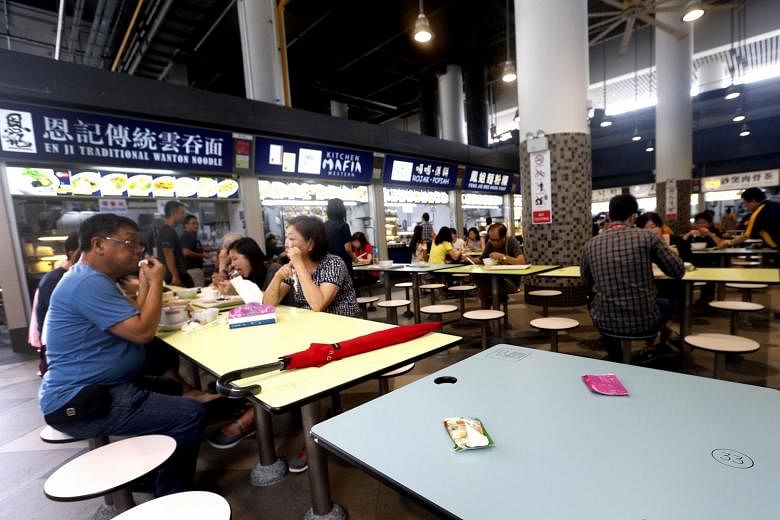It is true that "choping" has become such a deeply ingrained habit that many of us find it difficult to change and I agree with Mr Terence Lim's candid views (Recognise 'çhoping' as Singapore's culture, June 12).
However, it is good to study this issue in perspective and come up with ideas to resolve this social irritant.
First of all, we should determine why people have to "chope" seats in food outlets, especially at hawker centres.
Diners are faced with the dilemma over whether or not to "chope": It is socially unacceptable if they do, and if they do not, they may not have a seat after ordering their meals.
Either action would invariably result in a negative outcome or cause them inconvenience.
It appears "choping" is our way of life, and we have to live with it whether we like it or not.
But the situation can improve if a set of dining etiquette is implemented and this may include the following:
No placing of personal belongings on seats while eating, leaving them available to other diners; showing empathy for people who need a seat most; and no lingering after eating as others need the table and seats for their meals.
Inculcating all these is likely to take a long time.
With public education, the word "choping" need not have negative connotations of selfishness or of being ungracious over time.
Jeffrey Law Lee Beng

